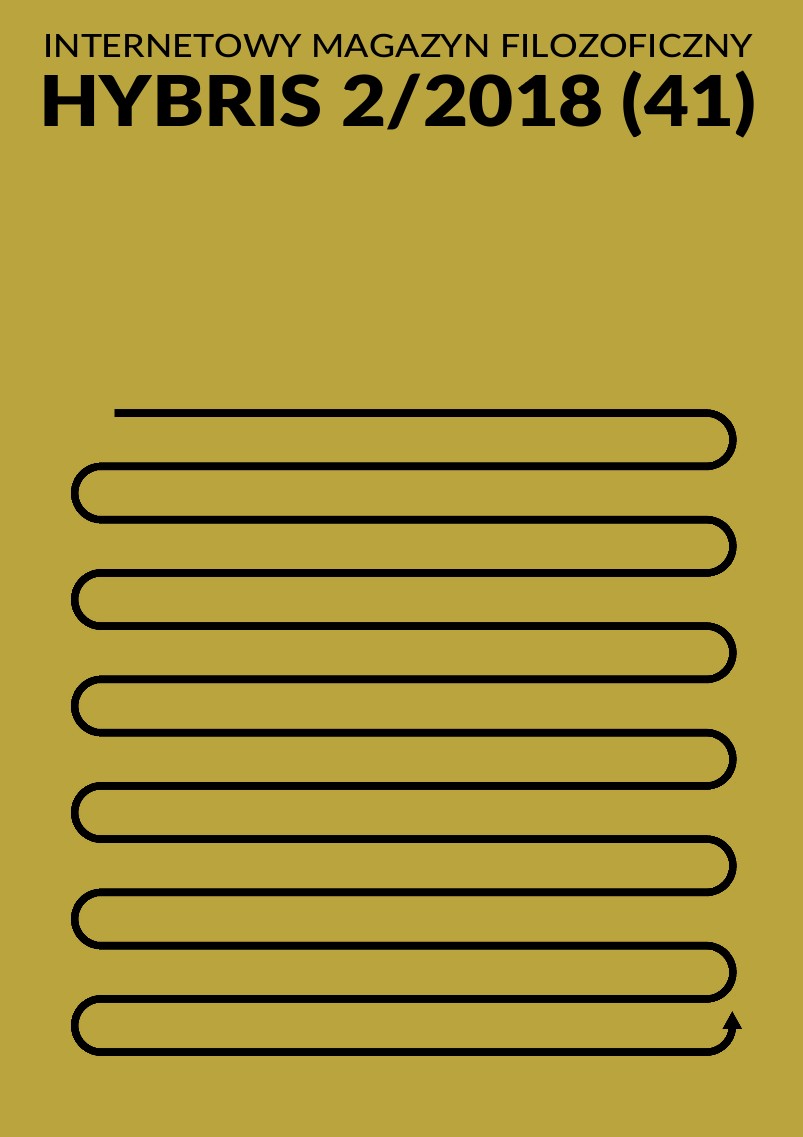Wittgenstein o rozjaśnianiu myśli. Wstęp do lektury „Traktatu logiczno-filozoficznego"
DOI:
https://doi.org/10.18778/1689-4286.41.08Słowa kluczowe:
Wittgenstein, Frege, niedorzeczność, rozjaśnianieAbstrakt
In this article I examine some remarks from Wittgenstein‘s Tractatus logico-philosophicus about the point and the method of his work. First part of the article concerns relationships between Frege‘s conception of elucidation and Wittgenstein‘s conception of philosophy. Second part of the article is about Wittgenstein‘s attitude to science and the role of science in philosophy. Third part of my article concerns the ethical purpose of Wittgenstein‘s Tractatus logico-philosophicus.
Bibliografia
Conant, J. (2014). Rozjaśnianie i nonsens u Fregego i wczesnego Wittgensteina. W: A. Crary, R. Rupert: Wittgenstein – nowe spojrzenie (211-256). Warszawa, WN PWN.
Zobacz w Google Scholar
Dehnel, P. (2009). Ludwig Wittgenstein. Teoria a terapia. Wrocław: Wydawnictwo Naukowe Dolnośląskiej Szkoły Wyższej.
Zobacz w Google Scholar
Diamond, C. (2014). Etyka, wyobraźnia i metoda Traktatu Wittgensteina. W: A. Crary, R. Rupert: Wittgenstein – nowe spojrzenie (181- 211). Warszawa: WN PWN.
Zobacz w Google Scholar
Frege, G. (1977). Pisma semantyczne. Warszawa: WN PWN.
Zobacz w Google Scholar
Gurczyńska-Sady, K., Sady, W. (2002). Ludwig Wittgenstein. W: Wielcy filozofowie współczesności. Kęty: Wydawnictwo Marek Derewiecki.
Zobacz w Google Scholar
Monk, R. (2003). L. Wittgenstein. Powinność geniusza. Warszawa: Wydawnictwo KR.
Zobacz w Google Scholar
Wittgenstein, L. (2012). Traktat logiczno-filozoficzny. Warszawa : WN PWN.
Zobacz w Google Scholar
Wolniewicz, B. (2012). O Traktacie. W: Wittgenstein, L., Traktat logiczno- filozoficzny. Warszawa: WN PWN.
Zobacz w Google Scholar
Pobrania
Opublikowane
Jak cytować
Numer
Dział
Licencja

Utwór dostępny jest na licencji Creative Commons Uznanie autorstwa – Użycie niekomercyjne – Bez utworów zależnych 4.0 Międzynarodowe.






